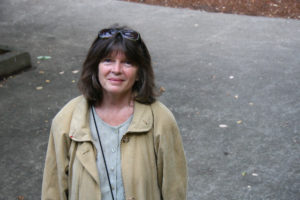 What makes a paragraph a prose poem? Hard to say… The first one I posted remains one of my favorites, A Story about the Body, by Robert Hass. It does tell a story, but it’s more than a story. This one, by Tom Hennen, starts out simply as prose, but then goes somewhere else.
What makes a paragraph a prose poem? Hard to say… The first one I posted remains one of my favorites, A Story about the Body, by Robert Hass. It does tell a story, but it’s more than a story. This one, by Tom Hennen, starts out simply as prose, but then goes somewhere else.
Report from the West
Snow is falling west of here. The mountains have more than a
foot of it. I see the early morning sky dark as night. I won’t lis-
ten to the weather report. I’ll let the question of snow hang.
Answers only dull the senses. Even answers that are right often
make what they explain uninteresting. In nature the answers
are always changing. Rain to snow, for instance. Nature can
let the mysterious things alone—wet leaves plastered to tree
trunks, the intricate design of fish guts. The way we don’t fall
off the earth at night when we look up at the North Star. The
way we know this may not always be so. The way our dizziness
makes us grab the long grass, hanging by our fingertips on the
edge of infinity.
Tom Hennen, “Report from the West” from Darkness Sticks to Everything: Collected and New Poems.
 Perhaps this has happened to you: you wake in the night with a revelation–the solution to a problem, the perfect start or end of a poem, something important and unforgettable. You know you should write it down, this has happened before and you never remember in the morning, but THIS time it’s too memorable. You know you won’t forget, and you’re still partly asleep and the pen and paper aren’t to hand and you turn over saying the phrase over to yourself and in the morning, of course, it’s gone. Here’s a version of this by Dorianne Laux:
Perhaps this has happened to you: you wake in the night with a revelation–the solution to a problem, the perfect start or end of a poem, something important and unforgettable. You know you should write it down, this has happened before and you never remember in the morning, but THIS time it’s too memorable. You know you won’t forget, and you’re still partly asleep and the pen and paper aren’t to hand and you turn over saying the phrase over to yourself and in the morning, of course, it’s gone. Here’s a version of this by Dorianne Laux:



 Something a little different for summer. The form is from the Japanese, a prose paragraph (or two) followed by a haiku. In the original form, it was usually a travelog with an apposite haiku at the end. But the form has morphed and this is a wonderful example of where it can go.
Something a little different for summer. The form is from the Japanese, a prose paragraph (or two) followed by a haiku. In the original form, it was usually a travelog with an apposite haiku at the end. But the form has morphed and this is a wonderful example of where it can go.